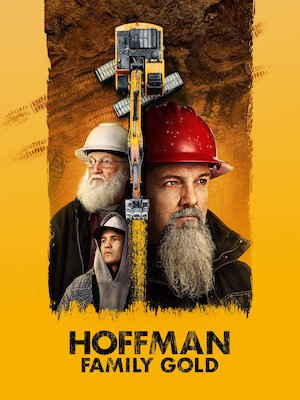What Failure and Mistakes Teach Us: Todd Hoffman and Adam and LaVon Hamilton
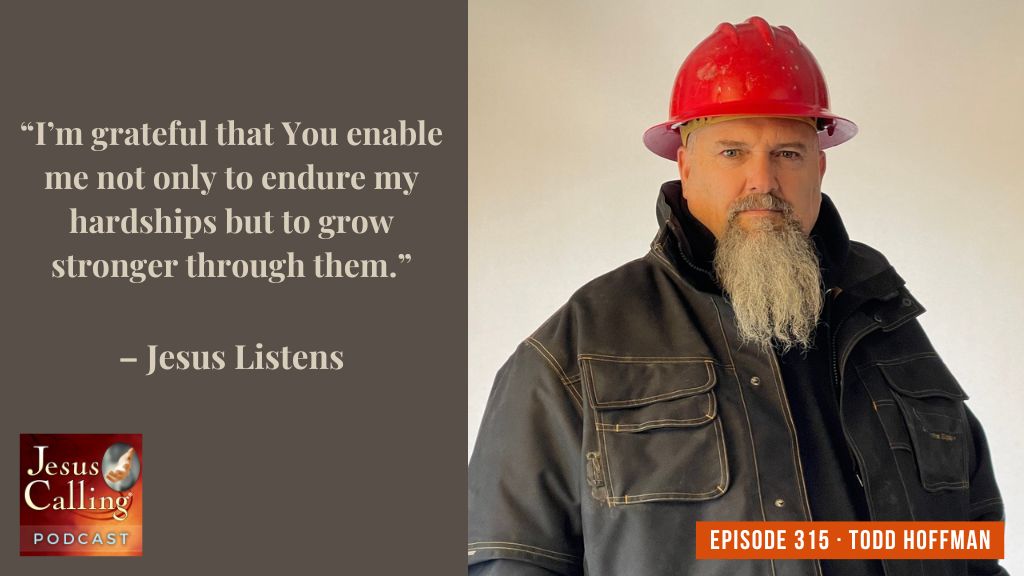
Todd Hoffman: People ask me this, like, “What gives you the confidence to actually face risks like those types of things in mining?” You know, I believe that I’m on a journey with Christ. I’m on a journey that is controlled by something beyond myself, and I believe I’m walking hand-in-hand with God. And even though I make mistakes, I believe that all things work together for the good of those who love Jesus, and I truly believe that.
What Failure and Mistakes Teach Us: Todd Hoffman and Adam and LaVon Hamilton – Episode #315
Narrator: Welcome to the Jesus Calling Podcast. Jesus’ parable of the shrewd manager in Luke 16 NIV has been regarded as one of the most puzzling passages in the New Testament. Nevertheless, one takeaway is clear: Jesus’ praise of the manager’s ability to adapt to his changing circumstances in the face of imminent financial collapse. What he models could be called—in modern terms—a growth mindset, a mindset that flexes to meet life’s challenges.
All three of our guests today espouse this teachable spirit. Discovery Channel’s Todd Hoffman has learned to adapt to the rigors of excavating, exploring, and gold prospecting. He’s learned as much—if not more—from his mistakes navigating the world of gold mining as from his successes. Pastor Adam Hamilton and his wife LaVon have had to use the same adaptability in their lives as spouses and parents. They speak about the challenging transitions of parenting kids as they become adults.
Let’s start with Todd’s story.
Todd: I am Todd Hoffman, part of the Hoffman family, which includes my boys, Hudson and Hunter, that you’ll see on the TV show. But also I’m the son of Jack Hoffman, and we created the show Gold Rush on Discovery Channel many years ago through an adventure of gold mining.
A Different Path
I grew up—we were kind of a lower-middle-class family in Northeast Portland. And through my early years, you know, I kind of knew that my family was a little different because we actually went to church, and my dad was an elder at the church. And so I started feeling different like I felt like God had a different path in my life and I accepted Jesus when I was really young.
I think that that has formed me, and now we reach millions and millions of people if we’re able to get a prayer on the show. To me, that’s huge because we’re in 200 countries in 120 languages.
And so being able to be on TV and gold mine, we have heavy equipment. I mean, I dig up gold, raw gold, from the ground. I dig up fifty to 1,000-year-old ivory tusks from wooly mammoths. I mean, I do a lot of cool stuff. And so that kind of has allowed me to walk a path, whereas when I do show my faith, there’s a lot of guys out there that are encouraged. And that’s kind of the big thing for me. I don’t care about fame, but I do care about the reach when it comes to my faith.
“I don’t care about fame, but I do care about the reach when it comes to my faith.” – Todd Hoffman
You Are More Than What You Do
I’m not a gold miner. I am much more than that. I’m not just a dirt processor. Gold mining is processing dirt, right? I do a lot more than that. I do other things besides just gold mining.
People, when it comes to gold mining, they’re like, “How did you get involved in it?” Because I grew up in the city like everybody else, I was playing baseball and going to games. And one day my dad was sitting in the stands at a baseball game and the guy next to him had a claim in Alaska. And he said, “Jack, do you want to lease my claim and go mine it?” And my dad’s like, “Okay, yeah, I’ve always wanted to, have read about it.”
We start putting the equipment together and we start mining. I think I was maybe fourteen or fifteen and we’re building things and we bought a dozer and we put it on a train and sent it up to outside of Fairbanks, 120 miles north of Fairbanks. I think my dad even borrowed money. So talk about something that you would not advise somebody to do. We did it, and we still do so. Our family is just that way. We go up, and launch into it. We were broke, even maybe lost some money during those years. This was in the eighties. Gold went up in price and then it went back down. And so everybody got back out of gold mining. But I always had this thing in my head. I said, “You know what, if I get a chance to do this again, I’m going to try to do this again.”
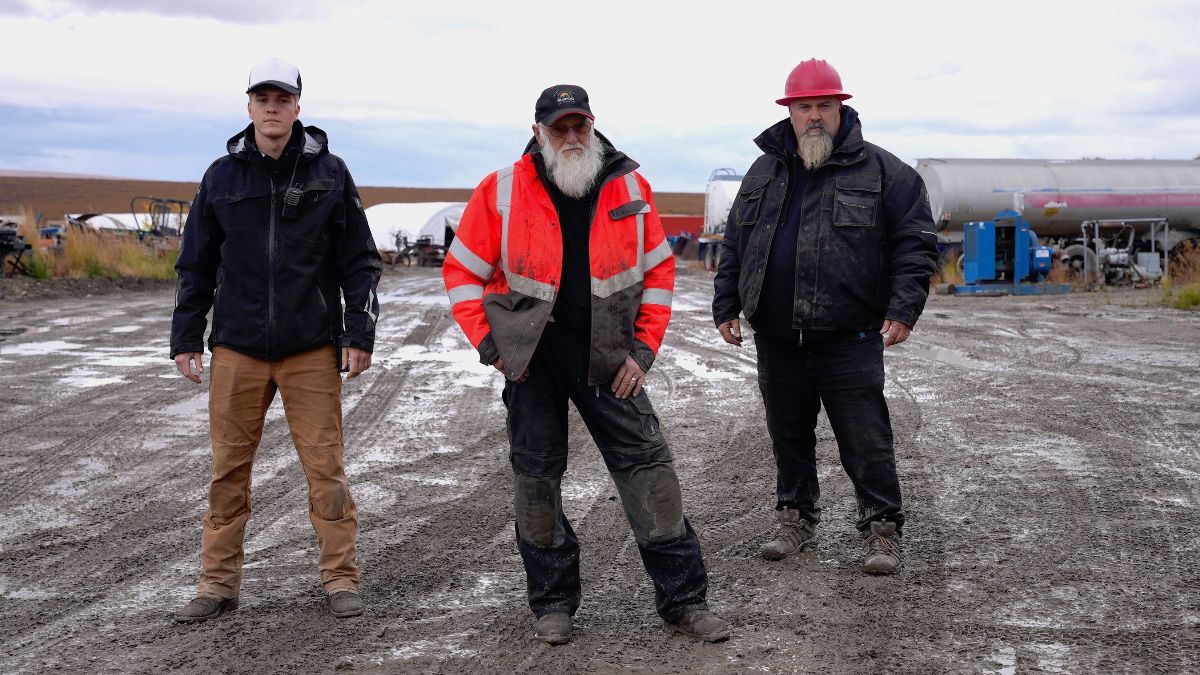
And then about 2009, gold started taking off, the economy’s down, and I told my dad, “Man, if we’re going to try this, we’ve always talked about going back, this is it. This is our one chance.” And so I was able to kind of put some equipment together. I told my parents, “I got a feeling that this would make a good reality show.”
So I found a little company in England, put a teaser together, took it to the Discovery Channel, and they were like, “We’ll take it. We’d like to follow this adventure.” And that’s how Gold Rush started. It was a gift from the Lord. I had an idea and I was able to just kind of develop it along, and make the right calls. And next thing you know, we’re in the middle of a reality show doing gold mining that we know nothing about, really. And that’s kind of how we got started in mining and in television.
The Perils of Mining Gold
I’m the creator of Gold Rush. I’m the creator of the biggest show in the history of Discovery Channel. Now that wasn’t created in New York or L.A., it was created in Sandy, Oregon, by an idea that was given to me by the Lord. It was given to me by God.
I was coming out of a really dark time in my life. You know, we had some issues in my marriage, and my wife and I, and I was kind of depressed and coming out of that and trying to fix things in my marriage. And that’s when God kind of met me. I said, “I need a good idea and I need something new to believe in.” And that’s when I got that vision of Gold Rush.
“I was kind of depressed and coming out of that and trying to fix things in my marriage. And that’s when God kind of met me. I said, ‘I need a good idea and I need something new to believe in.’ And that’s when I got that vision of Gold Rush.” – Todd Hoffman
Over the years, I’ve learned how to mine a little bit better through trial and error. I’ve had some wins. One year I dug up over 3,000 ounces. People don’t know that in today’s world, one summer was about five-point-something million dollars in gold. Right? So you know, you learn things by getting what’s called a college education, and sometimes that’s good and sometimes it’s painful. I had a real painful time when I lived in the jungle, so I’ve learned a lot over the years. But I am never going to say that I’m a professional gold miner because I’m just like everybody at home. I just wanted to live out the dream of gold mining.
And when I was able to turn it into a TV show, that’s when we exposed that little world-class mining to the rest of the world. And now that’s where it kind of changed our lives. It’s been a whirlwind over the years.
It’s a scary business. There are so many pitfalls in the industry, with the price of fuel, and equipment breakdowns. You have all these regulations and things like that. Probably the darkest time in mining was when I was in the jungle and I saw what they were doing down there. It’s a mess. Yes, they are ripping up the rainforest. This is happening. Are there regulations going on down there? Absolutely not. It’s a horrible mess. People were getting buried down there in little avalanches, and the rule of thumb is if you kill one of your workers, you have to pay their family $4500 and you’re good. And that’s what’s going on in the jungle. It’s like life doesn’t mean anything down there. And that was the darkest point.
I wasn’t getting gold, and the way to get the gold is you’ve got to destroy. You’ve got to mine like everybody else. And I’m like, “I’m not doing it.” And so, you know, it’s not fun going on worldwide TV and only getting like two ounces or three ounces for the summer and failing on worldwide TV. But you know what, I came out of that with my integrity.
It’s like the old story of the man in the arena like I was in the arena down there and I built a compound in the middle of the jungle and lived down there, mined, and did a lot of things, ran rivers, and got robbed and those types of things. I mean, we lived an adventure almost as you’d read in a pirate book or something. I mean, it’s crazy. I think that that was my fourth year of gold mining. But I don’t think I’d trade that experience down there for anything.
People ask me this, like, “What gives you the confidence to actually face risks like those types of things in mining?” You know, I believe that I’m on a journey with Christ. I’m on a journey that is controlled by something beyond myself, and I believe I’m walking hand-in-hand with God. And even though I make mistakes, I believe that all things work together for the good of those who love Jesus, and I truly believe that. There’s not a lot of fear, and you know, when it creeps in, I know that, you know, usually that’s not from God, it’s from somebody else, something else.
Our Faith is a Work in Progress
I am no poster boy for the faith because I am just a work in progress. I am saved by grace. I am a sinner. We are to talk about the Lord, we are to share our faith with people that will listen, and they will not like you for that. So you’ll see on the internet, I take a lot of heat for how I look, how I mine, and they hate that. I talk about the Lord sometimes and say, “That’s okay, at the end of the day, every single one of us is going to die and stand before the Lord, and you are going to be accountable. Nobody gets off the hook.”
So I have decided to accept that free gift that Jesus Christ offered us on the cross and accept Him as my lord and savior, and His blood has covered my sins. And Lord knows there’s a lot of them, and my family all feels the same way.
The verse says that you know, “Me and this mine, we’re going to serve the Lord.” (Joshua 24:15 NIV) We try to serve the Lord the best we can and we fail, but we get back up and we ask for forgiveness and we carry on.
“We try to serve the Lord the best we can and we fail, but we get back up and we ask for forgiveness and we carry on.” – Todd Hoffman
So being grounded in God and ministries like Jesus Calling, are important things to actually reach out and to give people the avenue to try to be plugged back in, because a lot of people give up. Do not give up. You cannot give up. You have to keep striving even when you feel like you’re less than or that you have missed the mark. You’re not alone. You need to get into communion with other Christians because there’s strength in numbers.
Narrator: Tune in to Todd’s newest show, Hoffman Family Gold on the Discovery Channel.
Stay with us for Adam and LaVon Hamilton’s story after a brief message.
New Video Series Highlights Stories of Prayer
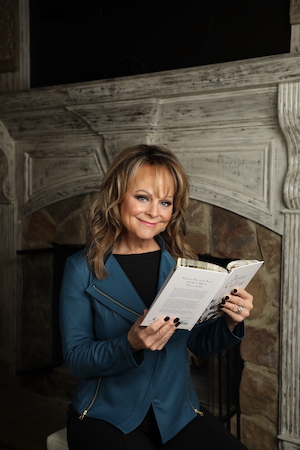
You’re going to love our newest video series called “Jesus Listens: Stories of Prayer!” Hosted by singer Susie McEntire-Eaton, the YouTube series features interviews with people from all walks of life sharing their touching stories of how prayer made a powerful difference.
Watch inspiring stories from the author and creator of The Simplified Planner® Emily Ley, entrepreneur Stephen Miller, and author and influencer Kim Douglas, plus many more.
New videos debut each month, so subscribe today so you don’t miss an episode!
Our next guests are Adam and LaVon Hamilton. Adam is a pastor and founder of the United Methodist Church of the Resurrection, the largest and most influential United Methodist congregation in the world. Here, they talk about their life of over thirty-two years together, raising kids through adulthood, and some of the lessons they’ve learned through seasons of transition.
Adam Hamilton: My name is Adam Hamilton, I’m the senior pastor at the United Methodist Church of the Resurrection in the Kansas City area. And I am also husband to LaVon and dad to Danielle and Rebecca and Papa to Stella.
LaVon Hamilton: And my name is LaVon Hamilton, and I’m wife to Adam and Grandma, or Mimi, to Stella and mama to two daughters.
I grew up in a home where my parents divorced when I was five years old, and my mother remarried when I was twelve. I have one sister and grew up in central Illinois. When I was a freshman in high school, we moved to the Kansas City area and I found a church there that I like going to, and I happened to meet a boy named Adam. And that was when I was a sophomore in high school and he was a freshman. And then we became friends, and it wasn’t until my senior year that we started dating, and soon after that we were married by the time he was seventeen and I was eighteen.
Adam: There were two periods of time that I feel like were the most challenging in our marriage. One was when we had children. We just surveyed at Church of the Resurrection, 7,500 people talked about their relationships, and we always find that one of the most challenging times—the marriage satisfaction goes down when you start having kids.
And then when we take a look at that period of twenty-five years in, and when our kids moved away, you know, each of them had moved out, and it was, I think, harder for you when the kids moved out. You wanna say anything about that?
LaVon: I don’t know if that’s true. If it’s true that moms have a harder time or not, I don’t know. But I think you were so wrapped up in the business of your life in the church and writing books and all the things that you had going on, and my main focus was the kids, and I think once they left, that focus was gone. And that’s where I had to transition into something new.
Parenting Kids to Adulthood
Another transition in life is always when your kids grow up and you’re apt to change the way that you parent, because you parent one way when they’re little and something completely different when they’re older. And I think that’s always hard to make that shift. Sometimes when you are used to focusing on them and worrying about them and setting rules up, setting boundaries up, worrying if they’re going to get into the right school, worrying if they’re studying the right thing. And then they become adults, and you no longer should have that control over your children, they have their own freedom and their own way of doing things. And I think your role changes then and becomes one more of a cheerleader as a support person, as an adviser if they want it. And yeah, it’s a huge transition in life.
I think you always have to be flexible as a parent, and I’m not sure I was very flexible because I like rules and boundaries, and I want to know what you’re supposed to do now and what the right answer is. But as your children, you know, you have a baby and as that baby grows, they change and they develop. And as they do that, I think it’s important to reassess how you’re parenting and try to change to fit that.
Adam: We had to learn to dance differently in different phases. And I think the same thing was true with our children. When we had children, at first that was both hard but also awesome and fantastic. But you’re constantly learning and neither of us, you know, nobody really knows, “Here’s all the right things to do as a parent.” So you’re praying hard and you’re trying to get it right and you’re going to miss it sometimes.
And then I thought, Once they turn eighteen, I won’t worry about them anymore. Now we’ll be done. I really, honestly, somehow in my mind, I thought, Once they’re eighteen, you don’t worry anymore. And then I came to find out I actually worried about them more when they moved away to go to college and what was happening in their lives, and they were making decisions.
LaVon: What is going…
Adam: …on in their lives? We didn’t know, and sometimes they were making decisions that would not have been the decisions that you would have made. And that also ties into their faith. They grew up in a pastor’s home. And so when you start pushing back and trying to figure out who you are, you start asking questions, maybe you start pushing back on your faith, and all of these things were so important to us, our home, that begins to change. And I just there was a lot of worry and a lot of fretting, and there was some frustration.
LaVon: And the way we parent is completely different. I mean, we no longer are setting rules or worrying about what they’re going to be doing next or having a say in that. More of our role now, parenting our adult children, is more of one of a cheerleader, of the advocate of somebody who’s there to support and to advise if we’re asked, but to try to be careful in how much advice you give and not to give unsolicited advice.
Adam: Which is really hard.
LaVon: Which is very hard.
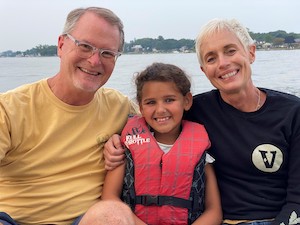
Adam: Especially when they have children. And then when you’re watching them parent their children…
LaVon: …and you see that they’re doing it differently than you did it and you think, Oh, that’s not the right way to do it, let me tell you how to do it.
Adam: Yeah, yeah. I also think you mentioned being a cheerleader, and I feel like with the girls, I try to either send them a text or sometimes the quality of a voicemail or whatever, but it’s just to say, “Hey, I’m so proud of you.” Or to look specifically at things that they’ve done. One of our daughters is a lawyer, and I’ve had a chance on a couple of occasions to go to the court and watch her in action. Not as much as I wish I had, but to be able to say, “I’m so proud of who you are and the character that you have and the way you do these things.” And I try, actually all their growing up years, to look for things to be able to praise and to encourage them about. But you know, I think that’s important that they know that their mom and dad believe in them, that they are proud of them, that they care about them.
LaVon: I would hope that as long as we’re still alive, that we’re finding ways to parent, that you’re still finding ways to show them love and care and to be that parent. And I know as we age, the tables kind of turn and they start helping take care of us. But I think that no matter how old you are, you can still look for ways that you can be a mom or dad to your children.
“I would hope that as long as we’re still alive, that we’re finding ways to parent, that you’re still finding ways to show them love and care and to be that parent. And I know as we age, the tables kind of turn and they start helping take care of us. But I think that no matter how old you are, you can still look for ways that you can be a mom or dad to your children.“ – LaVon Hamilton
Our Differences Make Marriage Interesting
In a lot of ways, Adam and I are very opposite people. He is a big picture person. I am a more detailed person. He is a visionary that’s looking far into the future and has our retirement plan. And I very much like to be at home by myself, and I’m good with not going out. You want to go out every night of the week.
Adam: I like to be around people, and I have venture tendencies. But there’s a lot of little things, like you always wanted to learn to dance. And when we took dance lessons, I hated it. I knew this mattered to you and it was going to be something you would enjoy. And I remember just thinking every single time, I don’t want to do this. But now I really enjoy dancing with you, and I would have never done that were it not for you saying, “Hey, this is something that’s important to me.”
So this is a little side note, but I think these are in so many ways the best years of our lives. And I feel like every a lot of times when you’re in your twenties or thirties, you think, Oh, well, it’s all downhill from here. But I feel like all of our best years were way after our thirties. You know, there were some things that were great at that time, I’m not denying that, but I feel like we have more joy. There is more satisfaction in life. I think we feel more in love with each other today than at any point in our past.
“I feel like all of our best years were way after our thirties. You know, there were some things that were great at that time, I’m not denying that, but I feel like we have more joy. There is more satisfaction in life. I think we feel more in love with each other today than at any point in our past.” – Adam Hamilton
LaVon: That’s true. But something that does surprise me; if you had asked me when I was eighteen years old, “What would have surprised you when you’ve been married forty years?” I would have thought that a couple who had been married forty years would have had everything figured out, that there wouldn’t be that many challenges. But as you progress through life, there’s always going to be challenges that come up.
You have to figure out how you transition together, or how you learn the dance steps for this phase in your life. Because dance music doesn’t stay the same throughout your whole life. It changes as you go through life.
“You have to figure out how you transition together, or how you learn the dance steps for this phase in your life. Because dance music doesn’t stay the same throughout your whole life. It changes as you go through life.” – LaVon Hamilton
Time for God, Time for Each Other
I think it’s important each day to take our time alone with God, and I think as we do that and we strengthen our own faith and we grow in our relationship with God, then we also are more capable of being the spouse that we need to be and that strengthens our marriage in turn. And I think that from the very beginning of our marriage, we’ve had a shared call. We’ve had a shared call to follow Christ. We’ve had a shared call to work to see His kingdom come here on Earth. And you know, your whole ministry and the work that you’ve done in building the church has been that same vision that we have, to have people come to know Christ. And you can’t do that without every day taking time for yourself to make sure that your faith is in the right place, that your relationship with Christ is in the right place so that you can have a relationship with your spouse.
And if you’re not thinking daily about that calling, if you’re not sacrificing daily for that other person that you have been called to love and care for, then it’s not going to be successful.
Adam: You can’t live the Christian life if you’re not actually in your heart striving to do this. And if you’re not quietly listening for God, if you’re not striving to read scripture, if you’re not spending time in prayer, if you are not yielding yourself to God, you can’t lead other people there. And so I think this is essential. It’s out of what’s going on in our spiritual life that we end up living our faith towards other people, or failing to live it if we’re not having that kind of quiet time. So I do think the idea of daily time in prayer or daily time in scripture, daily time reflecting or meditating upon scripture is really important. I’ve known many people that have used Jesus Calling in their daily lives, and so many times I feel like the Holy Spirit speaks right through that. Or Jesus Listens and what Sarah Young is doing with this, the idea of praying, laying out prayers that are rooted and grounded in scripture is really important to me.
The times when I’m spending more time in scripture or spending more time in prayer or, you know, more yielding myself to God, the more I feel love for you and the more patient I am and the better husband I am. There’s a direct correlation between our spiritual life and our time with God and how we live out our faith toward the people that are closest to us. It’s easy to fake it when you’re around people for a short period of time, whether I’m greeting people as they walk out the door of church or it’s in the store or something else. It’s much harder when you live with somebody and you know the frustrations of the day-in and day-out stuff. But that’s where our faith plays an even more critical role. And so daily taking time to listen, taking time to pray, offering ourselves to Christ, and inviting the Holy Spirit to lead us, is critical for having the kind of marriages I think God intends us to have.
“There’s a direct correlation between our spiritual life and our time with God and how we live out our faith towards the people that are closest to us.” – Adam Hamilton
Narrator: To learn more about Adam and LaVon and their church, visit the United Church of the Resurrection at www.cor.org.
If you’d like to hear more stories about parenting, check out our interview with Dr. Meg Meeker.
Next Week: Walker Hayes & Craig Cooper
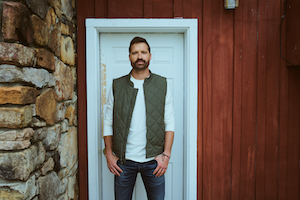
Next time on the Jesus Calling Podcast, we hear from best friends Walker Hayes and Craig Cooper—a country music artist and a pastor—who formed a friendship at a time when Walker’s family desperately needed help, and so did his relationship with God.
Walker Hayes: I quit drinking while knowing Craig, which is crazy to walk with somebody closely through that. I mean, he saw God’s redemption front row, front and center. Craig and I are brothers. I mean, we’re more than the concept of brothers, we’re family. And it’s just comforting.
